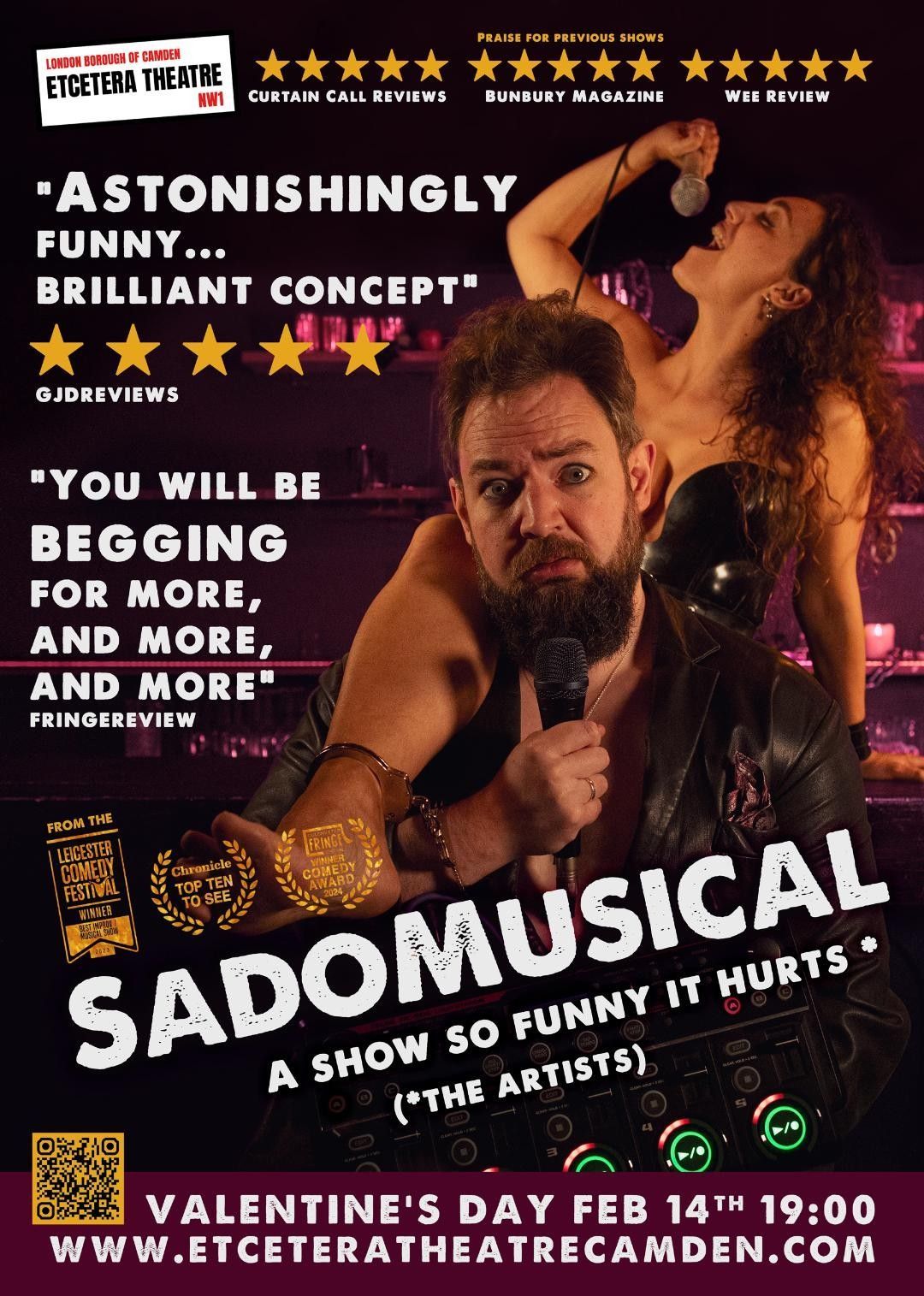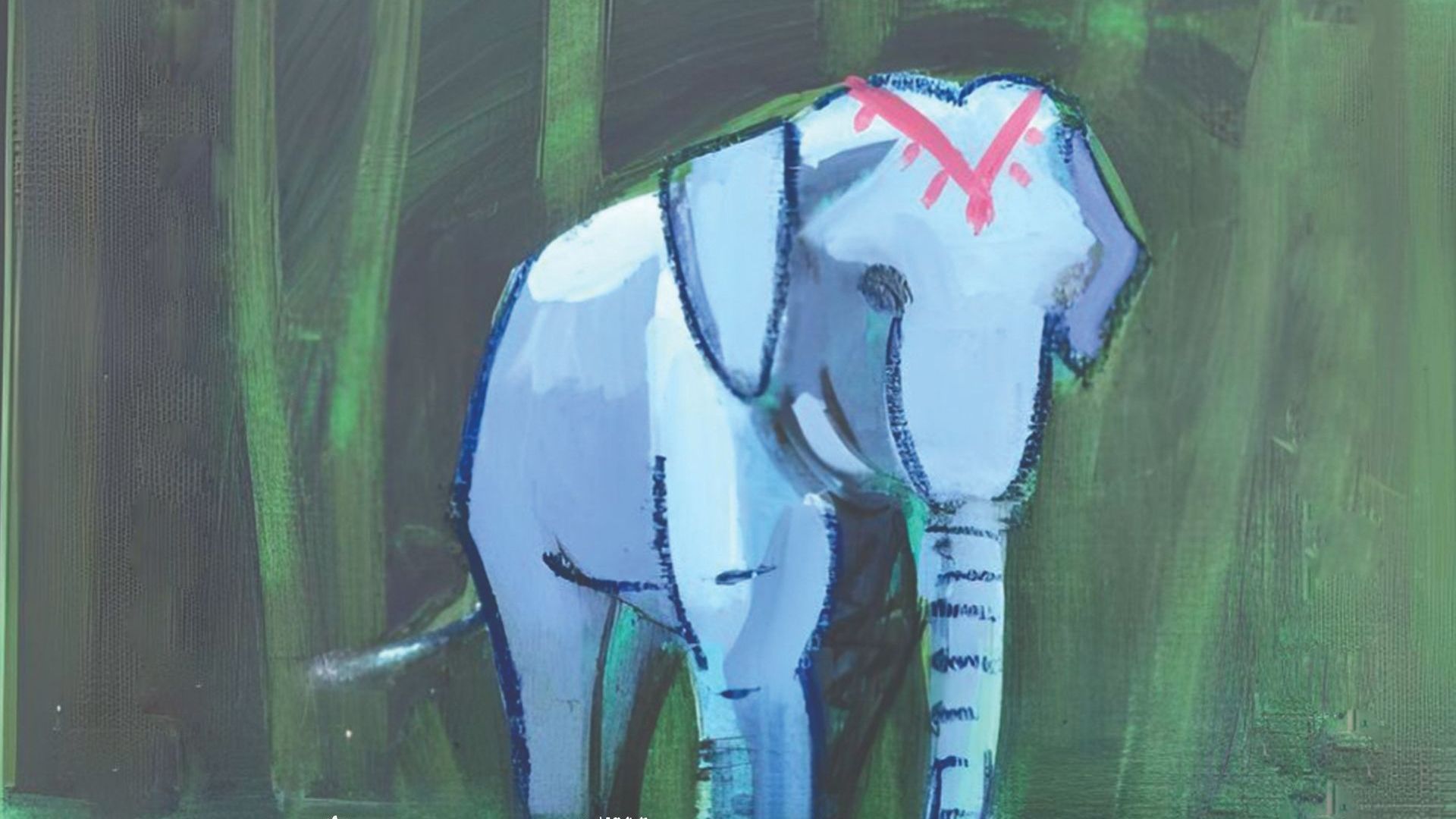CLOCKSCHOOL THEATRE is one of the great unsung heroes of the London Fringe. Run and founded by the playwright poet Peter Hamilton, the company produce Hamilton’s new writing work, often with the directorial design of Ken McClymont, a theatre director and artist. Over the course of the last two decades, Clockschool have produced numerous plays across the London Pub Theatre scene, at the White Bear, The Old Red Lion, and now most recently at the newly re-branded THEATRE AT THE TABARD in Chiswick, where they are opening Peter’s latest play, THE ELEPHANT IN THE ROOM, is a tragi-comedy about a young man who checks himself into a retirement home.
Upon meeting the pair, it is clear that the two theatre-makers have an easy, rolling friendship and a way of speaking comfortably overlapping each other, something that reveals their years of working in each other’s company. Their mutual respect for each other is clear, and they have a light-hearted, and at times humbling, way of speaking about their own work. Peter is something of a quintessential English gentleman, with a gentle husk in his voice and a luxuriating lean to the way he fills the space, it is only the sharp gimlet glint in his eyes that betrays his cheeky sense of rebelliousness and humour. Ken, on the other hand, sits ramrod straight, his mouth always almost turning upwards into a smile, as though he is always on the verge of telling you a joke.
Thank you for agreeing to talk to us - you’re about to open your latest show, The Elephant In The Room, this month at The Theatre At The Tabard, would you mind telling us a little about what the show is about?
Peter: Right, well it’s about a young man who has had intimations of not belonging in this world, at school, all his life. And this seemed to come to a head when he went on a trip to India and had a meeting with a guide there, Veneet, who explained the fourth stage of life; where people leave their lives behind, and take to the road with begging bowls, and pursue a pilgrim’s path - a spiritual path. And so it’s about that, it’s about someone who feels the call to take the spiritual road.
As a playwright you’ve said previously that you’re often drawn to true stories from the newspaper, serving as the basis for the original idea and then extrapolating them into a drama - what was it about the initial story that intrigued you?
Peter: Well it was about a young man of 20, who did exactly this. He checked himself into a retirement home at a young age. I thought about it, and I thought ‘well he must have money’, because as some say [in this play] if you could go in [to a retirement home] at any age for free, then there would be queues up the M4. So I worked it on from there. In fact in an earlier version of the play I made it that he did it to become noticed, because it did get in to the papers. I had it that he [Ashley Davenport] had deliberately done that and it was all a ploy to get famous. The instant fame that you need now to get on in life. (Peter chuckles at this)
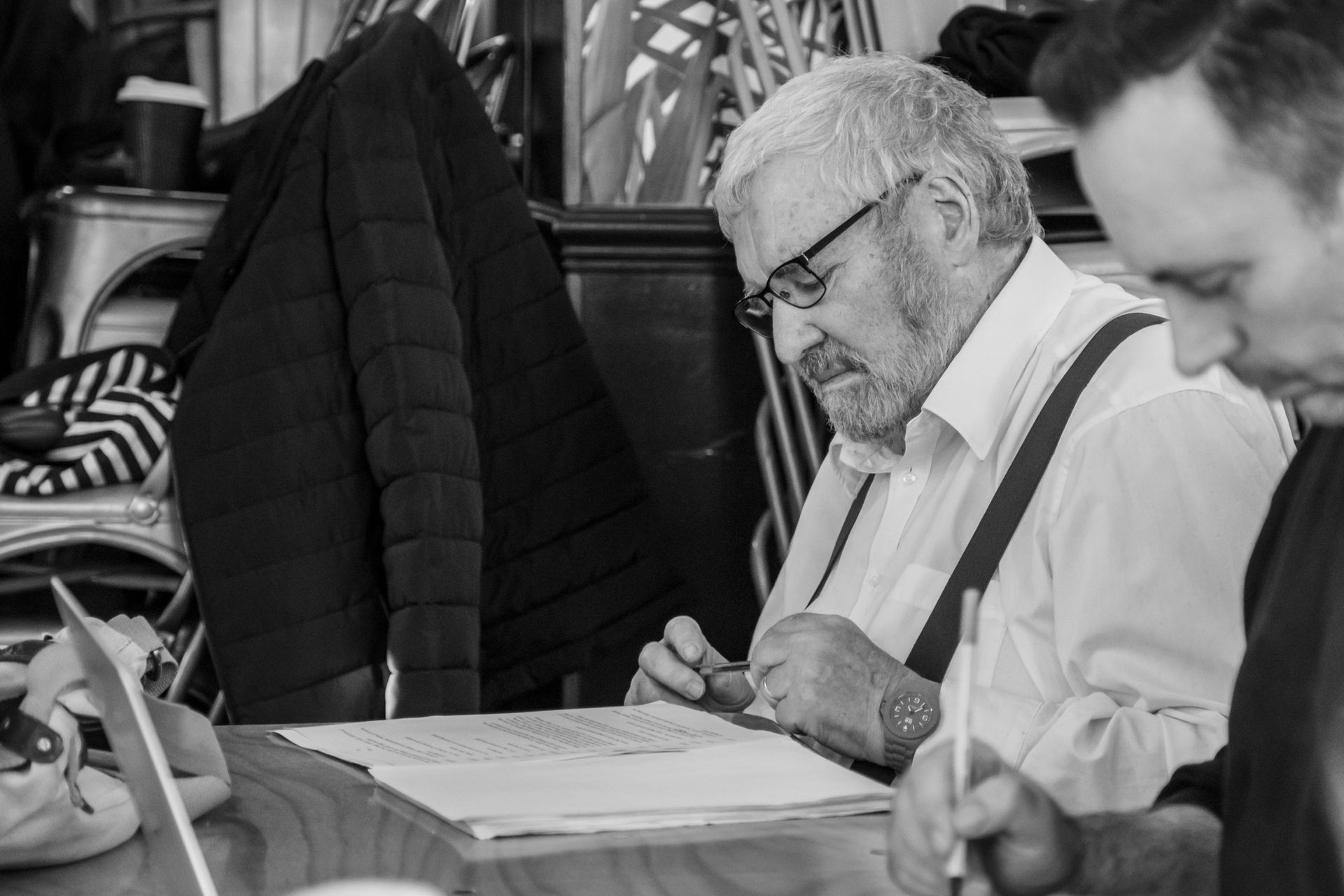
Peter Hamilton, writer of THE ELEPHANT IN THE ROOM
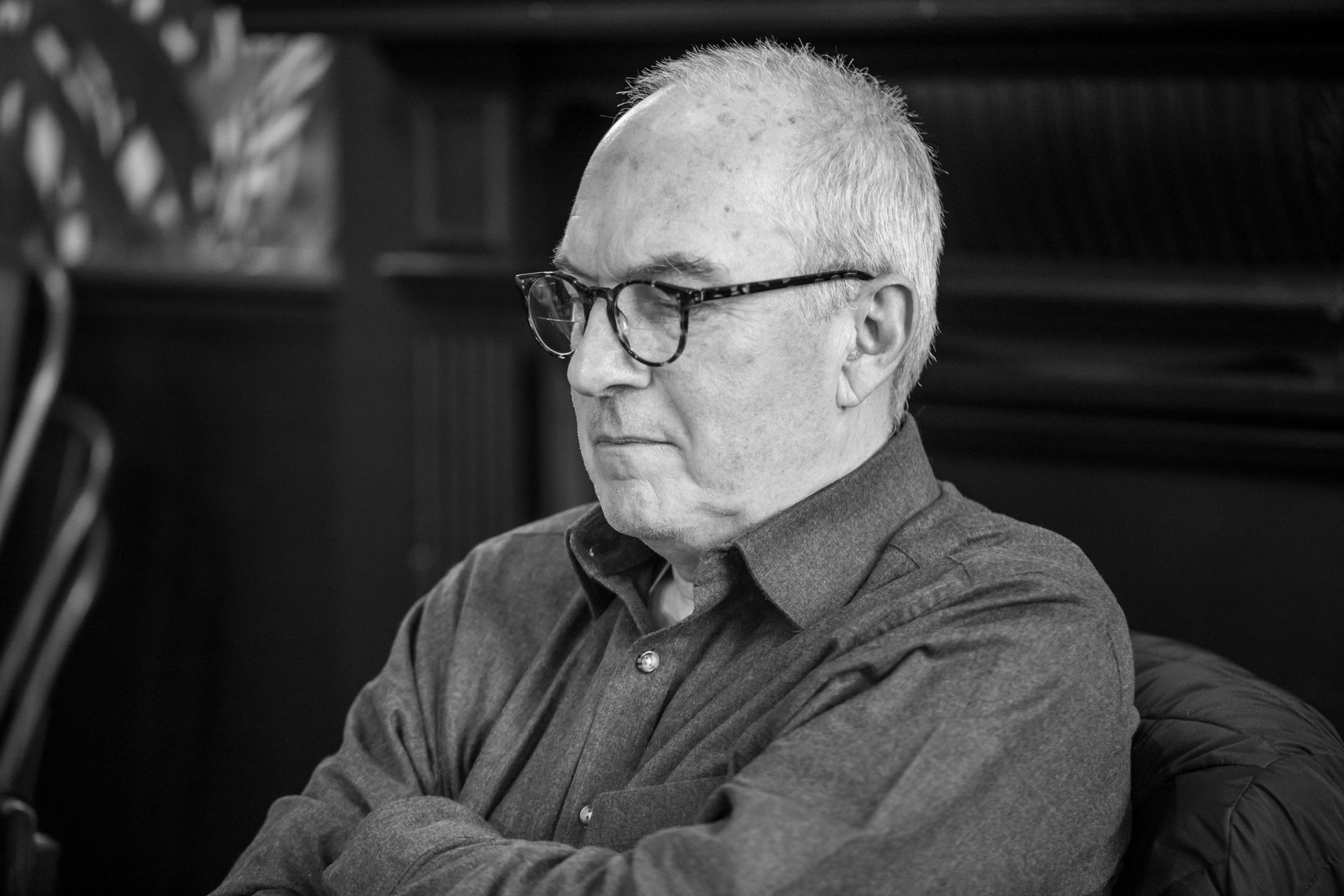
New Paragraph Ken McClymont, Director of THE ELEPHANT IN THE ROOM
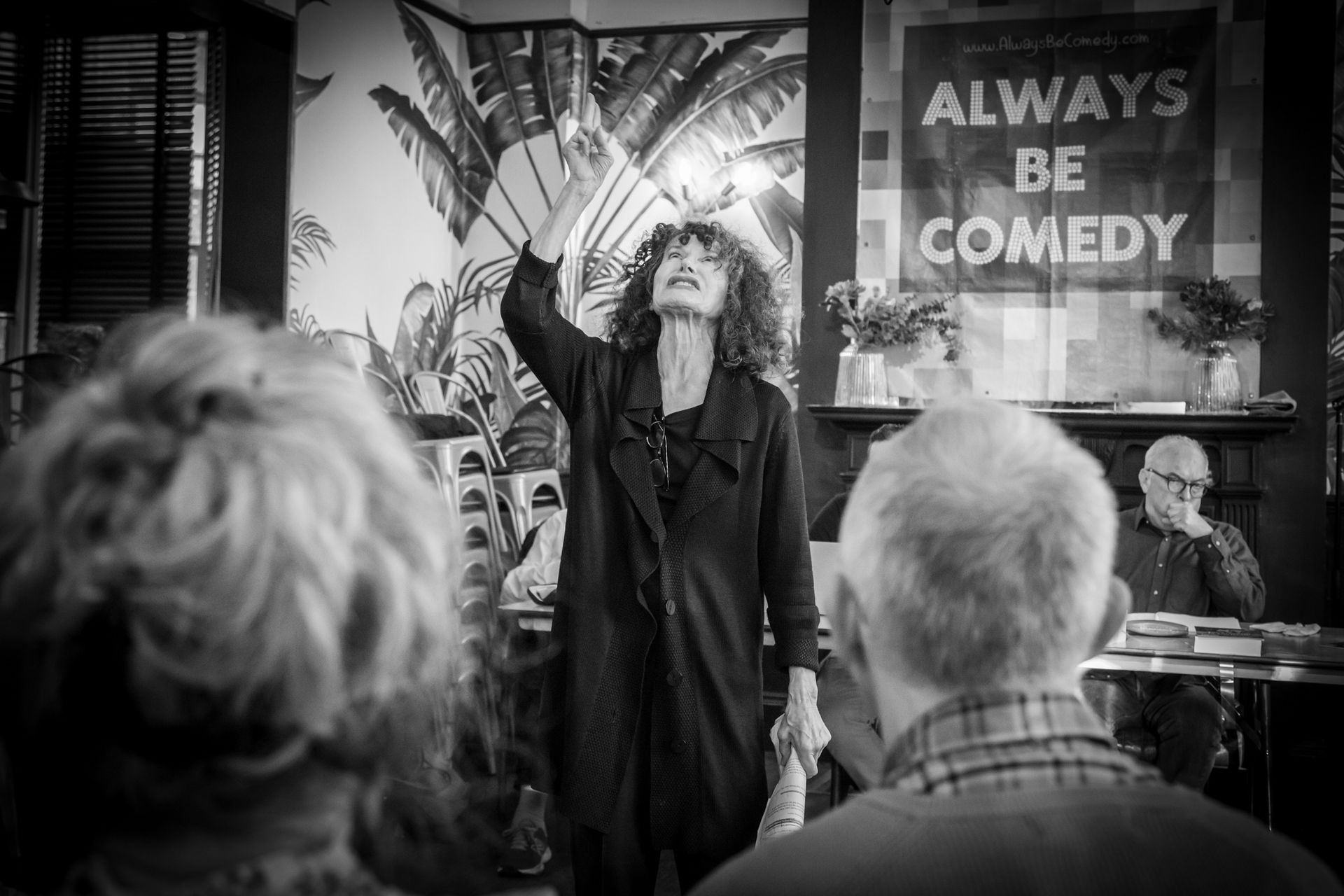
In rehearsal: Kristin Milward as Judith Wells
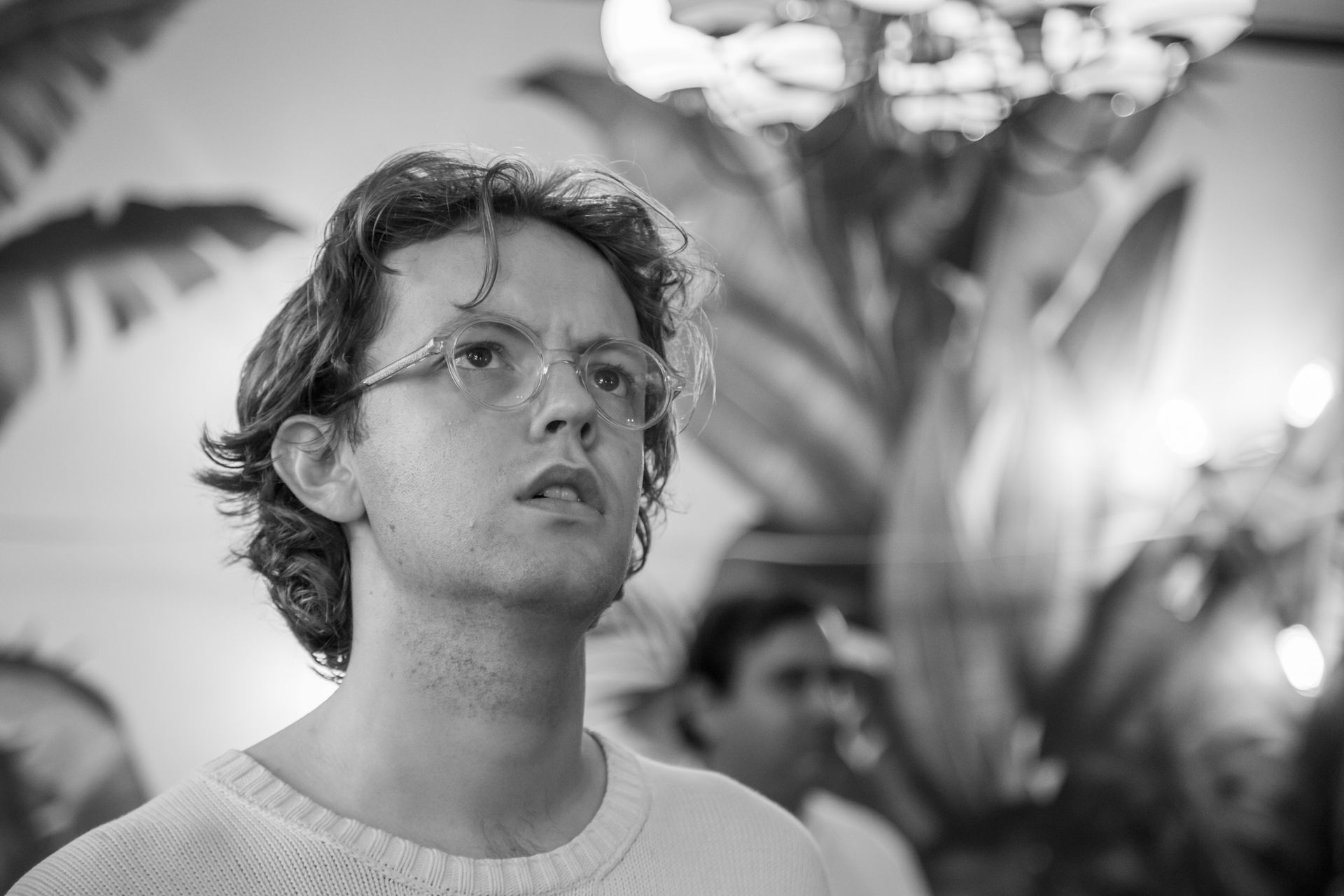
In rehearsal: Fraser Anthony as Ashley Davenport
Ken, as a long time collaborator of Peter’s, what interested you in this particular script and what has been the biggest challenge during rehearsals?
Ken: Peter’s plays always interest me because they have a certain quality and they’re not pedestrian in any way whatsoever, which I love; the challenge of presenting something like that on stage. Thankfully Peter trusts me well enough (he chuckles, looking in Peter’s direction) to allow me to direct them and design them. And what was the second part of the question? The biggest challenge? I wouldn’t say there has been a challenge. I think a relationship has grown in that Peter comes to me with the script, I read it, and Peter makes notes and tells me how he’s changed the play, because we’ve had about ten versions of this? (He looks to Peter)
Peter: Yes, yes.
Ken: Yeah. So it’s just the collaboration, I think, is very good. I think we trust each other.
You’ve spent many years as a painter in fine art, and within your work there’s an ongoing motif of a circle - drawing your work together and making it instantly recognisable as yours - is there an approach or motif in your approach as a director that runs through your theatre work?
Ken: In my opinion, it’s the job of a good piece of art to know where to look at it. And that’s what I try and bring in to theatre; that the audience are led to look at certain areas of the stage and hear what it is they’re supposed to hear, so that the story is told as clearly as possible.
Peter, in your company Clockschool Theatre, you regularly rehire a group of actors, mixing the familiar faces with the news, do you now write with particular people in mind, or do you start with the voice and work outwards?
Peter: No, I start with the voice. Yes, I find a voice first. I will often use the same actors, I don’t really write for them.
Ken, what particular benefits do you find in the process to rehearse with actors you’ve worked with before?
Ken: There’s a nice element of trust and shorthand. You know that the actors will get to the points that you would like them to get to without too much deliberation and argument at times or discussion, because that takes up a lot of time in rehearsals. And I think when you work with people that you know it’s nice because in this cast half the cast are new. More than half the cast are new. And it’s been lovely to mold them in with the people who we’ve worked with before. This shows a nice understanding within the group.
Peter, in your previous work - like Danelaw, Blue, Playground and now with Elephant In The Room, there seems to be a running theme of restlessness, and of characters trying to find their place - what attracts you to the story of the individual versus society?
Peter: Oooh. Well, I grew up with novels on those themes, Camus’ The Outsider, [which] seemed to strike a chord with me. Also I like those run of English novels about middle-aged misfits, so I suppose they’ve taken root. The History of Mr Polly and George Orwell’s Coming Up for Air, people who find themselves on the outside.
And you, Ken, of course ran the Old Red Lion Theatre for almost twenty years, what ingredients, in your opinion, makes for the best pub theatre? What can pub theatres do that perhaps larger more established theatre venues cannot?
Ken: Pub theatres can show the work of upcoming writers or aspiring writers, which West End theatre obviously can’t. Again, it’s more of an interesting venture in that people are doing things which are maybe a bit more off that wall and not as run-of-the-mill as what you usually see in the West End. And I like that sense of adventure about it. I despise the ordinary.
Peter, your plays deal with some quite dark and serious subjects, and yet your focus and the way you handle these topics never lean into the gore, suffering or spectacle of the darkness. Instead, rather wonderfully, your plays and the characters in them are infused with a great deal of humour in spite of their suffering - is finding the spiritual light in the darkness something that holds particular importance for you?
Peter: Yes, I think it is. Yes, I am in fact a practising Catholic (he laughs) so I am quite an optimistic sort of person I would say. Yes, I like humour and things. (He laughs)
And finally to you both, what would you like audiences to take away from seeing a performance of Elephant In The Room?
Ken: I’d like them to take away a sense of opening. What I get from the play is a nice - I hate the word nice - opening to tomorrow. That there is something better within life. I think that’s what I’d like them to take away…with a few laughs.
Peter: I’d like them to feel they’ve had a good evening, and enjoyed it.
The Elephant in the Room is the latest play from Peter Hamilton. His previous works include Switchboard (Theatre503), Danelaw (White Bear and Old Red Lion), Skara Brae (White Bear) and The Reappearance of Christ (White Bear) which was Critics’ Choice in the Sunday Telegraph.
Directed by Ken McClymont and filled with humour and a touch of spirituality, The Elephant in the Room is a charming story that will capture your heart and inspire you to embrace life’s possibilities. Join Ashley, Kim-Ly, and the unforgettable characters they meet along the way, as they discover the true meaning of love and the beauty of chasing your dreams.
THE ELEPHANT IN THE ROOM
8 November - 2 December
THEATRE AT THE TABARD in Chiswick
CAST:
Baptiste Semin as MIGUEL
Craig Crosbie as GEORGE ‘JOHNNY’ COPTHORNE
Fraser Anthony as ASHLEY DAVENPORT
Josie Ayers as ROSEMARY BROOM
Kristin Milward as JUDITH WELLS
Lee Jia-Yu as KIM-LY
Stephen Omer as DAVID WEBLEY
Yasser Kayani as KRISH IYENGAR
